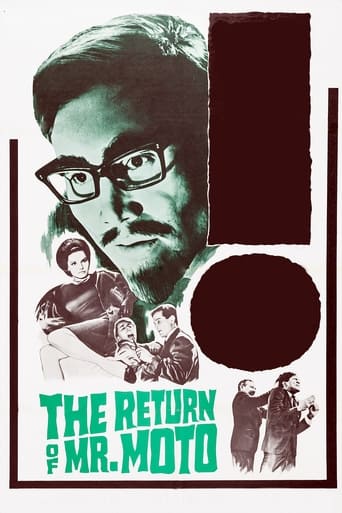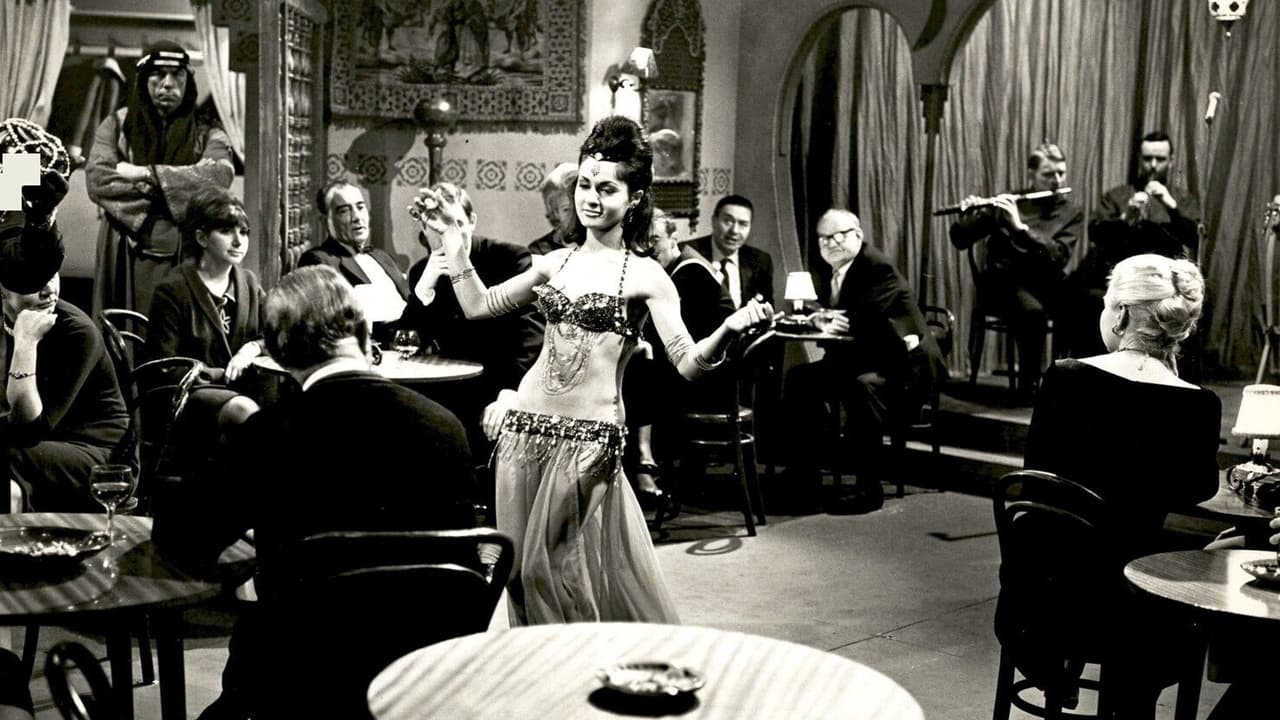gavin6942
Mr. Moto (Henry Silva) goes undercover to find out who has been blowing up oil wells and trying to gain total control of all the oil leases from a petroleum-rich Middle Eastern country.The previous series of eight films was in the late 1930s and starred Peter Lorre, but Moto faded away for a number of reasons. The biggest probably being WWII. Was the character gone forever? Nope. Finally in the 1960s, director Ernest Morris brought the character back after his long absence. It was a one-off, but a decent one. Silva's Moto is very subtle compared to Lorre's in his speech and appearance, but it is still effective. Why a new series did not spring from this is unclear.
pmsusana
I'm not one of the reviewers who apparently lined up to bash this movie; I think that 20th Century-Fox guaranteed it a hostile reception by inviting comparison with the fondly-remembered Peter Lorre series of thirty years before. On its own it's a efficiently-produced crime thriller that moves along briskly and offers some genuine surprises and suspense to open-minded viewers. It's been suggested by some (including Henry Silva himself, in the DVD's audio commentary) that Silva is physically unsuited to play an oriental, but the same could be said of the Hungarian Peter Lorre in the earlier series, or the Swedish Warner Oland who became the definitive Charlie Chan. And it's worth mentioning that Henry Silva has convincingly played characters of various nationality over the years.A beautiful letterboxed transfer of this film can be found as an extra on the final disc of the Peter Lorre/Moto DVD series; I found it well worth seeing for its entertainment value as well as Henry Silva's fascinating audio commentary.
tvrogersjr-1
One of the interesting things (looking back) about the original Mr. Moto series is its timing relative to WWII. It was also quite well written and, like many classics, provides some good commentary on society of that time. I think a post-WWII Moto film would be a good idea, but not this one. Poorly written and poorly acted, this film certainly does not do justice to a fine old classic. With the original Mr. Moto played by a German and Charlie Chan by a Swede, one would think that our enlightened 1960's society would at least come up with a proper Japanese-descent actor to play Moto. They certainly didn't pay a lot for the script and even less for sets. The feeble attempt with two folding screens and a cheap print of a Geisha on the Moto's wall didn't quite make us believe Moto's "orientalness". I hope someone takes another, better, stab at bringing back Mr. Moto.
John Seal
Once the viewer recovers from the shock that star Henry Silva plays Mr. Moto totally straight--no awful accent or taped eyelids here--the truth emerges: The Return of Mr. Moto is a boring quota quickie. Shot on the cheap in black and white by producer Robert Lippert, the only concessions to art are a few nice set ups by cinematographer Basil Emmott, who had been shooting British films since the early 1920s. The story involves oil concessions in the Mid-East (some things never change!) but the film looks and plays like one of the many West German Edgar Wallace krimis of the period, with lots of people skulking around shadowy corners. The only thing missing is Klaus Kinski.


 AD
AD

